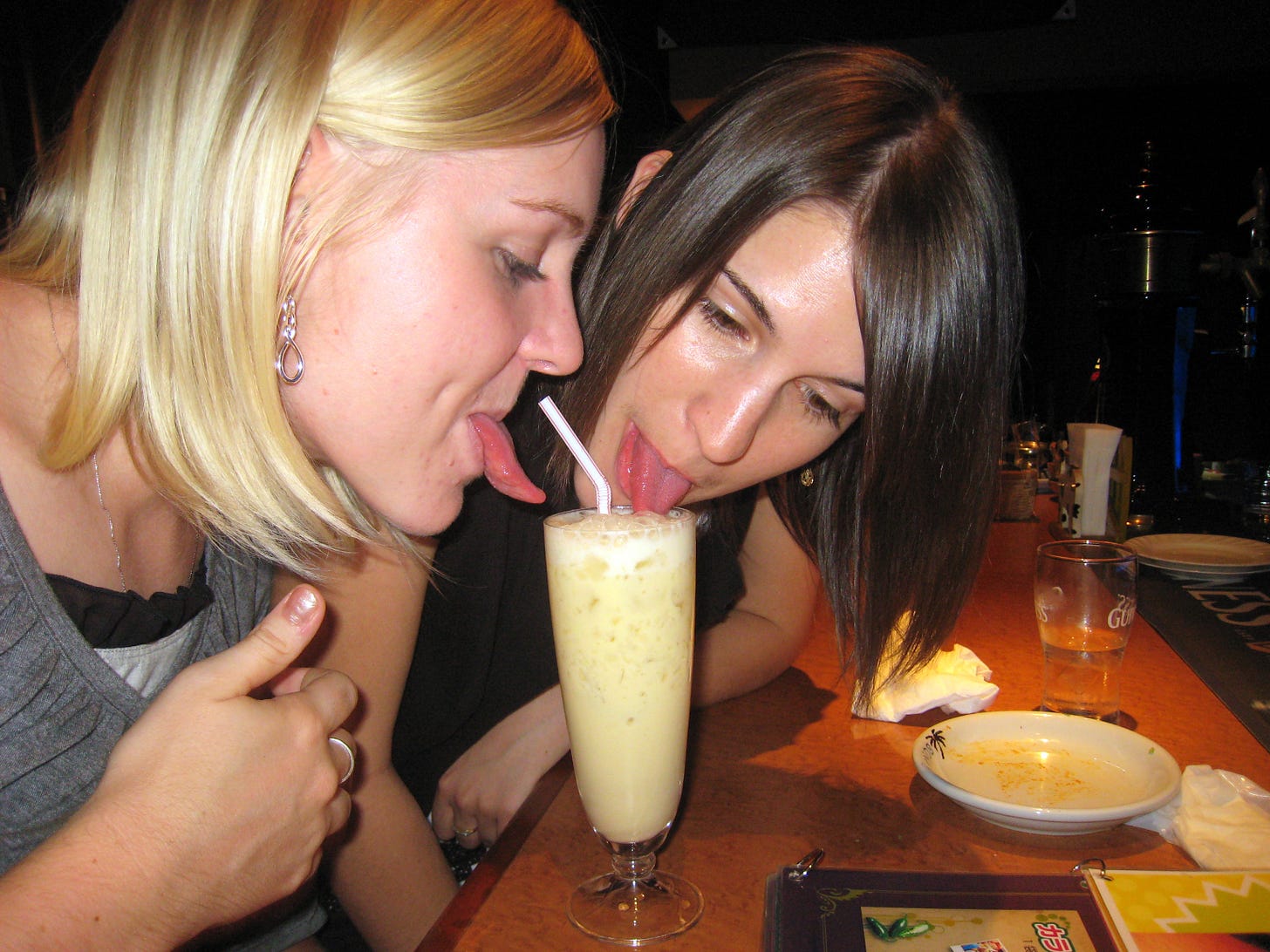Cultural Learnings from the Pina Colada Song
And yes, I deliberately missed the tilde off the eñe in ‘piña’

I’m in a karaoke bar in trashy Torremolinos, one of the Spanish coastal resorts catering mainly to sun, sea, sex and sangria-seeking British tourists. For reasons that can be explained only by an excess of alcohol, my name is down on the list, and my number’s up.
This particular cultural soirée involves a random selection from the compère’s disc of Karaoke Klassix (we are back in the late 1990s, before the gratuitous use of ‘k’ and ‘x’ as signifiers of krazy fun, fun, fun was deprecated by the gods of typographical style).
So what eternally butchered work of the songsmith’s art awaits me and my expectant audience?
I look up at the gaudy screen, a riot of illegally vibrant RGB combinations, magenta the prime offender against all that is visually good and holy.
Rupert Holmes (huh?) — Escape (double huh!?)
And then the parentheses that forge the whole thing into shape: (The Piña Colada Song).
Of course! Getting’ caught in the rain, makin’ love at midnight in the dunes on the cape, the feel of the ocean — a perfectly tacky Torremolinos karaoke number.
I like to think I gave it my best shot. Or shots. Of Cacique rum, DYC whisky, or whatever I was inadvisably drinking that night. But however unreliable my vocal rendition and mental recall of the event might be, I have one thing clear: the emphasis I placed on the correct pronunciation of piña colada.
“I’ll ‘ave a peena cull-arda!” the riff-raff around those parts would say. But I was not of their number. I was passing through while travelling Spain in the footsteps of the revered writer Laurie Lee, penning a travel book. I was of a different social and intellectual class. I knew how to pronounce the eñe properly, and was damned sure everyone was going to know about it.
I was a conceited idiot. A realisation that grew on me over the years, but should have become apparent that very night.
Pop quiz, hot shots: how many alcoholic drinks of non-English-language origin are mentioned in the lyrics to Rupert Holmes’ Escape? Clue: the answer’s more than the parenthetically eponymous piña colada.
Aside from the national cocktail of Puerto Rico — invented, according to the least plausible but most appealing of its various origin stories, by the Robin Hood-esque pirate Roberto Cofresí — Rupert and his new potential fellow eloper are also into “the taste of champagne”.
And how is that pronounced in the affluent middle-class circles where it is de rigueur at celebrations? Do we insist on French vowel sounds and the same /ny/ as in piña, which French transcribes as ‘gn’, rather than the uniquely Spanish ‘ñ’?
We do not.
We order ‘sham-paine’, without batting an eyelid, and without for a moment considering ourselves to be desperately uncouth, ignorant or plebeian. Quite the opposite.
The anglicisation of that and countless other terms is perfectly understandable, even inevitable. Each language has its particular sounds and rhythms, that in many cases only imperfectly overlap, and are often almost impossible to adopt for vocal cords and epiglottises shaped speaking another tongue (the term itself an indication of the physical structures that shape the sounds we utter).
And so on being imported into the English-speaking world, champagne first has its natural stress pattern shifted slightly, as French is a syllable-timed language so the word doesn’t natively have the heavily differentiated da-DUM iambic pattern imposed by English. But we also change both the vowel sounds, despite the fact that closer equivalents are available in English, and disregard the /ny/ sound of the ‘-gne’.
Yet in doing so we consider ourselves to be perfectly cultured and correct.
So how come missing the effect of the tilde off the ñ in piña is seen as being such a faux pas? (With a silent ‘x’ and ‘s’, if you puh-lease!)
Words get passed around between languages the whole time, and undergo varying degrees of adaptation to fit into the prevailing sounds, and avoid our mouths having to pause mid-flight to contort themselves into the different arrangement required for genuinely authentic phonetics.
We all do it, even if we’re bilingual. It’s only sometimes that we choose for reasons of social distinction to make a big deal out of it, to turn a syllable into a shibboleth.
Wannabe wine snobs, for example, are likely to get all high and mighty about the silent ‘t’ in Cabernet (while probably going with the average Joe flow when it comes to champagne…). But how confident would they be when confronted with grape varieties from beyond their linguistic comfort zone?
Xarel·lo, anyone? What even is that raised dot in the middle of the double ‘l’?
Pedro Ximénez? What phonetic flavour is that ‘x’?
Or how about a Tinta Cão, or Müller-Thurgau?
Perhaps the secret to it all is to indulge in a few too many of whichever of those options most takes your fancy. Not only will your vowels and consonants slur into a mush that makes any variant seem plausible enough, but you might stop worrying about whether you — or anyone else — is saying it right.
And what your perception of that might say about them — or more likely you.
I’ll ‘ave a peena cullarda, please!
With a couple of schwas on a cocktail stick.




I can't bear hearing Sevilla pronounced Seville. And don't even get me started on paella.
I wince when I hear a native English speaker prononce the T in merlot but apparently I'm fine when the Spanish or Italians do it.
Is that double standards or what?